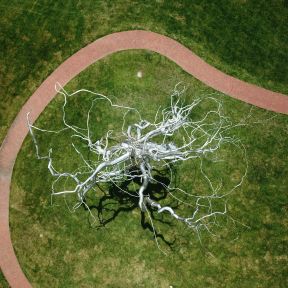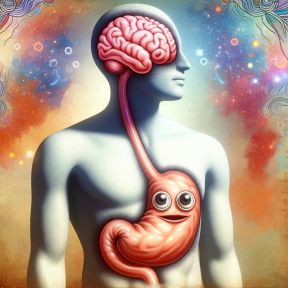Disorders of Memory
While some decline in the ability to remember is a normal part of aging, for a subset of people, growing older brings the onset of neurodegenerative conditions such as Alzheimer’s disease. In such cases, dementia gradually grows more severe and memory worsens to a much greater extent than is typical in the general population.
Amnesia, or abnormal memory loss, can also result from a range of other medical conditions, sudden brain injury, substance use, or in reaction to a traumatic event.
On This Page
Dementia is a progressive loss of cognitive function, most commonly caused by Alzheimer's disease but also by a number of other conditions. Memory loss is a major part of this functional decline, typically emerging as a mild impairment and growing more severe as dementia worsens. An estimated 50 million people worldwide have some form of dementia.
Dementia involves damage to parts of the brain that are important for memory, including the hippocampus and the frontal lobes. Consequently, memory problems are among the core symptoms of dementia. People with dementia may quickly forget personal experiences, frequently repeat themselves, experience distorted memories, not recognize family members, or get lost in a place they once knew well, along with other forms of memory breakdown. Forgetting may seem to move backward in time, beginning with recent events and ultimately affecting memories from many years earlier.
Someone with dementia progresses through stages of severity, and problems with forgetting grow worse over time. Relatively mild memory symptoms may include not remembering that one completed a task or recently told someone something. But dementia can ultimately involve severe memory problems such as being unable to retain new information or recognize loved ones.
While dementia generally involves memory impairments, there are differences with regard to when that dysfunction begins. In addition to Alzheimer’s disease, frontotemporal dementia, vascular dementia, and other conditions cause memory loss. In Alzheimer’s, memory problems are often an early symptom, but in frontotemporal dementia and vascular dementia they may appear after other symptoms, such as difficulty completing complex tasks.
While the degree of memory loss depends on the progression of the underlying disease, there may be striking examples of memories that are preserved for some time even as other are lost. A person with dementia may remember an event from the distant past even as she forgets something that happened that day. Someone might have a memory of a younger version of a family member without being able to recognize that person in the present. Memory for skills (such as playing piano) may also persist for a relatively long time. But even these various preserved memories may be lost as dementia becomes more severe.
There is some evidence that listening to music from one’s youth and exposure to visual reminders may help a person with dementia recall and talk about memories of the past that would otherwise not arise in conversation.
Mild cognitive impairment (MCI) is the term for an age-related decline in cognitive function that is more severe that what is typical for aging adults but less severe than what is seen in dementia. Someone with MCI may, however, go on to develop dementia. People with MCI may experience memory problems that are noticeable to themselves or others while still maintaining normal daily function.
Amnesia is a substantial loss of memory, including diminished ability to remember the past, to create new memories, or both. Amnesia can have many possible causes and encompasses various manifestations of memory loss, including sudden and temporary forms as well as gradual and permanent losses, as in dementia.
Amnesia can include problems with both the retrieval of previously formed memories and the formation of new ones. Retrograde amnesia is a difficulty with remembering information acquired in the past, including facts and the details of personal experiences. Anterograde amnesia is a difficulty with storing new information in memory. A person may experience both kinds of amnesia, or one kind without the other.
Transient global amnesia involves a temporary inability to retain new memories, even as one remembers details from the past (including who one is and who others are). It may also impede the ability to recall recent memories. It is a rare syndrome that is most likely to effect individuals over age 50. Those who experience it typically return to normal memory function within a day, often in as little as a few hours.
Dissociative amnesia is a relatively rare disorder in which one forgets important information about one’s own life, memory loss that is not attributable to a different disorder, disease, injury, or substance use. It may be limited to specific memories or encompass a wide array of memories about oneself. The amnesia often fades after a brief period, but more rarely can last months or years. Dissociative amnesia, also called functional amnesia, is often preceded by a traumatic experience, according to the DSM (though the idea that memories of trauma can be unconsciously repressed has been disputed by memory experts.)
Dissociative fugue is a form of dissociative amnesia in which a person’s sense of self, including memory of one’s identity, is impaired, and the person also feels an urge to escape. Dissociative fugue states, while typically temporary, can cause a person to flee home, sometimes to distant places. Like other forms of dissociative amnesia, they are often preceded by severe stress.
There are a variety of forms of amnesia and many potential causes. Amnesia is a major element of Alzheimer’s disease and other neurodegenerative diseases that cause dementia. Other forms of brain damage—from stroke, tumors, seizures, encephalitis, insufficient oxygen in the brain, traumatic brain injury, or other causes—can cause amnesia of varying levels of severity. Heavy alcohol use can eventually cause Korsakoff syndrome, a symptom of which is amnesia. Dissociative amnesia (or functional amnesia) is often preceded by a highly stressful experience.
Amnesia may coincide with other forms of cognitive deficit, as in the case of dementia. But it can also occur in a person whose other cognitive faculties are intact, as when brain damage is specifically localized in an area of the brain associated with memory (such as the medial temporal lobe).
While there is no cure specifically for amnesia, medical care is essential when a head injury, stroke, or other form of brain damage causes memory loss. Certain kinds of therapy and professional support can help a person cope with amnesia due to other causes. When Alzheimer’s disease is the cause of amnesia, for example, medication may be prescribed as part of treatment to improve memory and other aspects of cognitive function. Interventions for amnesia may also include working with an occupational therapist or adopting compensatory tools such as electronic reminders or notebooks.
Henry Molaison, known as “HM”, is frequently mentioned in discussions of memory due to the lessons learned based on his participation in scientific research. After the removal of parts of his medial temporal lobes during an operation to stop epileptic seizures, HM became unable to create many types of memories and lost much of his memory from before the operation—even as other cognitive abilities remained intact. Among other things, his case provided evidence of the critical role of structures such as the hippocampus in memory. Clive Wearing, a musician, developed severe retrograde and anterograde amnesia and reportedly loses memories after about half a minute or less.
Childhood amnesia (also known as infantile amnesia) is not a disorder, but rather the normal phenomenon in which people are unable to remember most experiences from early childhood. Research on childhood amnesia suggests that adults tend to have very few or no memories of their lives prior to age 4, and relatively few memories prior to age 8.
When a concerning or hard-to-explain loss of memory becomes apparent to an individual or to the person's friends or family, it’s best to consult a health care provider. A neurological assessment alongside a professional examination of one’s memory can help determine whether increased forgetfulness is a symptom of an underlying condition and if any intervention is warranted.
Some degree of memory loss is a normal part of aging, but amnesia can be a sign of serious medical problems. A medical professional should be consulted if a person shows warning signs such as failing to remember information that is used frequently, struggling to complete tasks due to memory challenges, or otherwise exhibiting a noticeable and unexplained increase in forgetfulness.
An assessment for potential memory problems may involve a basic screening of one’s ability to recall information, possibly followed by a more formal, in-depth neuropsychological evaluation to analyze memory and other cognitive functions. A health care provider may also investigate potential factors in memory problems using neuroimaging, lab tests for relevant vitamins and hormones, and an examination of the role any medications might play.














